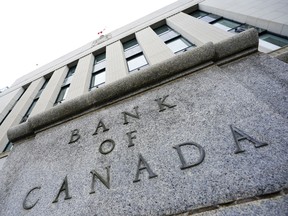A new poll has revealed that persistently high inflation is prompting more Canadians to hold off on buying big-ticket items. The survey, conducted by Nanos Research Group for Bloomberg News, found that over a third of Canadians have cancelled a major purchase due to higher prices.
Financial Pressure Mounts as Inflation and Interest Rates Rise
The poll underscores the financial pressure Canadian households are feeling due to the combination of high inflation and rising interest rates. It’s a trend that is likely to continue as growth gears down: Most economists expect the country to enter a technical recession in the first half of this year.
Poll Highlights the Impact on Younger Consumers
Price pressures are hitting younger consumers the hardest, with 50% of respondents aged 18-34 saying they’ve canceled a major purchase, compared to 23% for those 55 and older. This highlights the difficulty that younger Canadians face in navigating the current economic landscape.
Household Debt Levels: A Key Factor in Economic Slowdown
Households in Canada already have relatively high debt levels compared with many other developed countries – a big reason why the economy is expected to slow more quickly than the United States in response to higher borrowing costs. This suggests that Canadian households may be more vulnerable to economic downturns.
Employers’ Inaction on Inflation
Poll respondents said they aren’t getting much help from their employers to ease the rising cost of living: 87% of employed Canadians reported receiving no special raise to offset inflation. This lack of support from employers is a concern for many Canadian workers who are struggling to make ends meet.
Inflation Peaked in June, But Concerns Remain
Inflation peaked in June at 8.1%, the highest since the early 1980s, and has since fallen to 6.8%. Average wages are up just over five percent in the past year – a modest increase that may not keep pace with rising prices.
Methodology: Nanos Poll of 1,021 Canadians
The Nanos poll of 1,021 Canadians was conducted online and by telephone between Dec. 19 and 22, with a margin of error of 3.1 percentage points. This survey provides valuable insights into the concerns and behaviors of Canadian consumers in the face of rising inflation.
Implications for the Economy
The findings of this poll have significant implications for the economy. As households put off big purchases, it will likely lead to a decrease in consumer spending – a key driver of economic growth. This could further exacerbate the slowdown in economic activity and increase the likelihood of a recession.
Why Canadians Are Putting Off Big Purchases
There are several reasons why Canadians are putting off big purchases. Firstly, high inflation is eroding the purchasing power of consumers, making it more expensive to buy essential goods and services. Secondly, rising interest rates are increasing the cost of borrowing, making it more difficult for households to take on new debt.
Impact on Consumer Confidence
The decision to put off big purchases will likely have a negative impact on consumer confidence. As consumers delay or cancel major purchases, it will create uncertainty about future economic conditions. This could lead to a decrease in overall spending and a further slowdown in economic activity.
What’s Next for Canadian Consumers?
As the economy continues to slow down, it’s essential for policymakers to consider the impact of high inflation and rising interest rates on Canadian households. They should implement policies that support consumers and help them navigate these challenging economic conditions.
Conclusion:
The poll highlights the concerns and behaviors of Canadian consumers in the face of rising inflation. As households put off big purchases, it will likely lead to a decrease in consumer spending – a key driver of economic growth. Policymakers must consider the impact of high inflation and rising interest rates on Canadian households and implement policies that support them.
Sources:
- Nanos Research Group
- Bloomberg News



